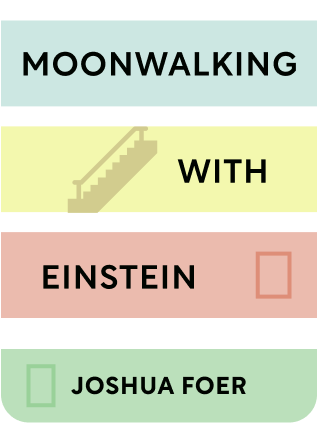

This article is an excerpt from the Shortform summary of "Moonwalking With Einstein" by Joshua Foer. Shortform has the world's best summaries of books you should be reading.
Like this article? Sign up for a free trial here .
What is a mnemonist, and what do they do? How does someone become a mnemonist?
A mnemonist is someone who has an ability to recall data. Mnemonists usually gain their skills through practice and specific techniques, not because they have any sort of natural ability. In fact, most mnemonists agree that anyone can gain world class memory skills.
Read about some of the top mnemonists in the world and their best methods.
What Is a Mnemonist?
Throughout the author’s year-long exploration of memory, mental athletes were constantly telling him that anyone can learn memory techniques. Unlike savants, there’s nothing unusual about the brains of mnemonists. So what is a mnemonist, and what do they do?
However, mnemonists do tend to belong to a particular subculture. They dress unusually, enjoy juggling, often don’t have impressive day jobs, and many of them are male, young, and white.
Mnemonist Definition
The mnemonist meaning is simply a master memorizer. Part of the mnemonist definition that these memory masters deliberately work on their memorization skills. In fact, the best mnemonists compete internationally.
Here are some notables:
1. Tony Buzan
Tony Buzan is one of the most notable figures in the memory world, and other mnemonists have mixed feelings about him. Half of them think Buzan is a genius whose methods will transform the educational system, and the other half think he’s an unscientific moneymaker. Either way, the mnemonist meaning definitely applies to Buzan.
When Buzan was a child, his best friend Barry was put in the “dunces’ class” while Buzan was in the most advanced classes. However, Barry was very good with nature and animals—he could identify everything. Buzan realized that there was something wrong with the system—if the school thought Barry wasn’t smart when he clearly was, the system must be misdefining intelligence.
Buzan’s second ah-ha moment was in his first university class. Whenever his instructor took attendance and someone was missing, the instructor would call out their address, phone number, birthday, and parents’ names. Buzan asked the instructor how he’d done this. The instructor refused to tell him for a long time, but one day he explained the Major System to the entire class.
Buzan again realized the failings of the educational system—the Major System was a game-changer, and no one had ever taught it to him until now. He was sure there were other important things he’d missed. He couldn’t find a book about how to best operate your brain—and there still isn’t one—but he did find the Ad Herennium.
Buzan learned memory techniques and then worked as a substitute teacher and taught them to students. He came up with a particular method of note-taking called a Mind Map, which is a bit of an on-paper memory palace. A Mind Map involves drawing lines between main and subsidiary points and using lines, color, and images to connect things. Scientists at the University of London studied Mind Maps and found that they resulted in about a 10% increase in retention than mainstream note-taking techniques.

———End of Preview———
Like what you just read? Read the rest of the world's best summary of Joshua Foer's "Moonwalking With Einstein" at Shortform .
Here's what you'll find in our full Moonwalking With Einstein summary :
- The memory techniques that took the author from novice to US memory champion in one year
- The 6 key types of memory we use everyday
- Why memory isn't just genetic, and how you can improve your memory with the right techniques






